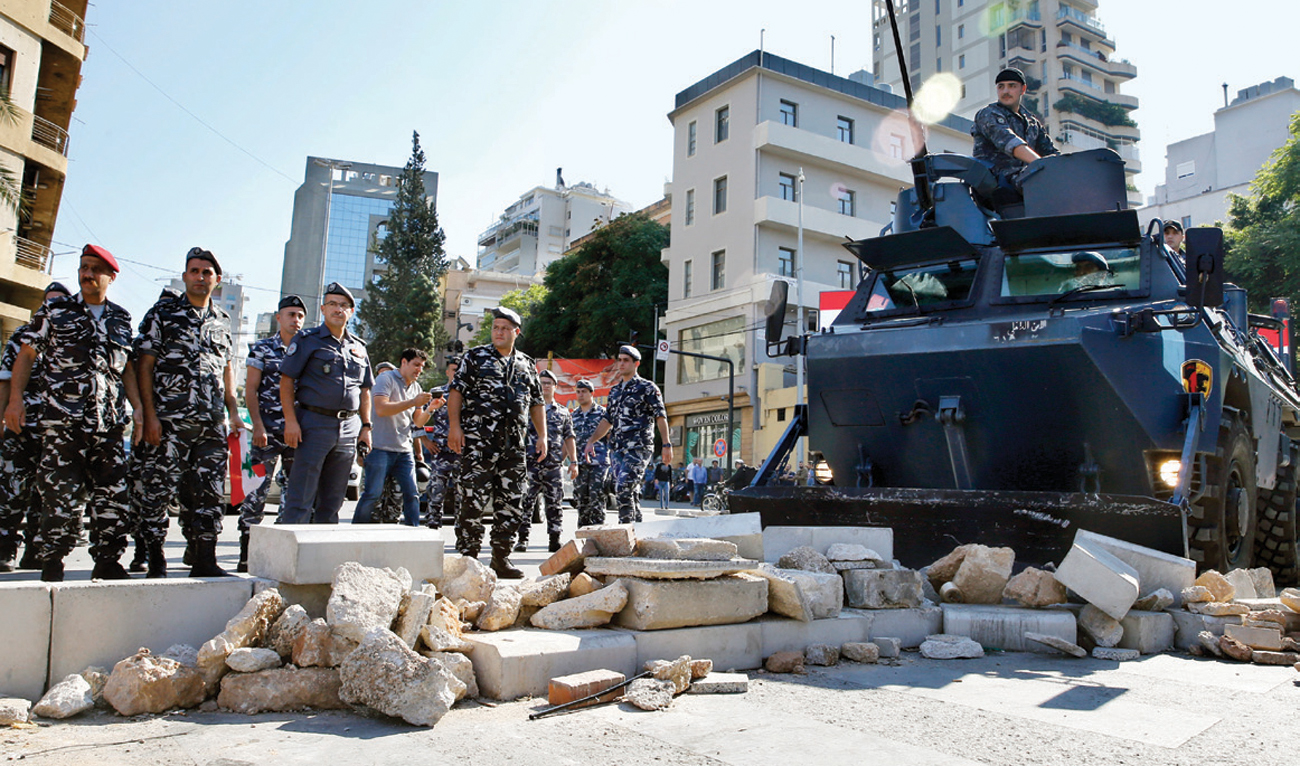The post-Hariri resignation stage: Paving the way to assign a replacement
BEIRUT: Prime Minister Saad Hariri announced the resignation of his government in a move that suggested there is no winner in Lebanon. Neither have the two-week protests fulfilled all their demands nor has Hariri succumbed to some of the powers’ rejection to bring about any government change.
At two in the afternoon on Wednesday was the deadline set by the Lebanese army command for the protesters to reopen all the roads they have blocked across Lebanon. This demand aimed to “reconnect all regions in accordance with the law and public order.” The army command stressed “the right to protest in accordance with the provisions of the Constitution and under the protection of the law in public squares only.”
It was not easy to convince the protesters, who were adamant to continue to escalate, to leave the streets despite that their first demand, which is the resignation of the government, has been fulfilled.
There have been many debates between those who refused to leave the streets and those who are convinced that the squares should suffice in the next stage. Frustrated protesters have expressed outrage by accusing unnamed parties of having attempted to thwart the movement. Their high-pitched yelling expressed their disappointment, but everyone complied with the army command and left the streets.
Free Patriotic Movement ministers and MPs said in a statement that they were shocked by Hariri’s decision to resign and that he had not coordinated with President Michel Aoun.
The pro-Hezbollah Al-Akhbar newspaper said that Hariri succumbed to external pressure and participated in the coup against the Covenant in light of the foggy events in the streets.
Hezbollah Secretary-General Hassan Nasrallah had said last Saturday: “We do not accept overthrowing the Covenant, we do not support the resignation of the government, and we do not accept early parliamentary elections because this is a complicated issue.”
On the fourteenth day of the protests, Lebanon entered the stage of the constitutional steps that follow the resignation, intensifying communication to restore the political situation. In the presidential palace, off-the-record active communication between President Aoun and his political allies took place to formulate a vision for the next political phase. The General Directorate of the Presidency issued a communiqué declaring that President Aoun has accepted Hariri’s resignation and demands that the government continues to operate normally until a new government is formed. The communiqué did not specify the dates for parliamentary consultations to appoint a new prime minister to form a government.
The Association of Banks announced a tacit agreement to commence operation starting Thursday, but the banks’ doors will remain closed to customers until a decision on this subject is taken in the coming days.
Walid Fakhreddine, political expert and civil movement activist, told Arab News: “The street is still intense as people have fulfilled their first demand to bring down the government, but we await the next stage. If no date is announced for the start of the parliamentary consultation to assign a new prime minister, we shall be ready. PM Hariri took responsibility and the ball is now in the court of the political powers.”
He added: “The street has won so far, and the victorious party shall be determined through the political considerations in the formation of the next government. We shall watch and see if the politicians understand the street’s demands and how they will seek to please it. The squares are available and have not been closed, and blocking roads is also accessible.”
“People are exhausted but have not lost faith. It is true that we are now in the stage of catching our breath, but at the same time, we are observing. The key to the solution has been put in place—the government must resign, and if the political forces return to their previous ways for handling the protests, we shall be on the lookout.”
“The people overthrew the government that Hezbollah was preventing from getting overthrown, and this is the first political victory,” former MP Fares Souaid told Arab News.
“Even if some thought they can re-engineer political life and restore it to how it was before the protests, they will not be able to do that because the people who have tested themselves and their abilities will take to the streets again,” he added.
Souaid said: “In revolutions, the final results need time. Lebanon’s social media generation resembles that of Iraq, Khartoum and Algeria, and violence cannot be used against them. They have fought for Lebanon’s lifestyle, and their achievements deserve respect and encouragement.”
As part of the foreign reactions to the resignation of the government and the assault on protesters in Beirut, the embassy stressed Lebanon’s need for “a government capable of urgently implementing vital and necessary reforms to build a better country for everyone.” It also warned that “violence or intimidation by any group during peaceful protests will only contribute to undermining Lebanon’s unity and stability.”
UN Secretary-General António Guterres appealed for calm and restraint. He called on all political actors to seek a political solution that preserves the stability of the country and responds to the aspirations of the Lebanese people.
He also called on all actors to avoid violence and respect the rights to peaceful assembly and expression.

Lebanon’s Aoun asks cabinet to continue in caretaker role until new government formsLebanon’s closed banks pledge to pay out salaries



